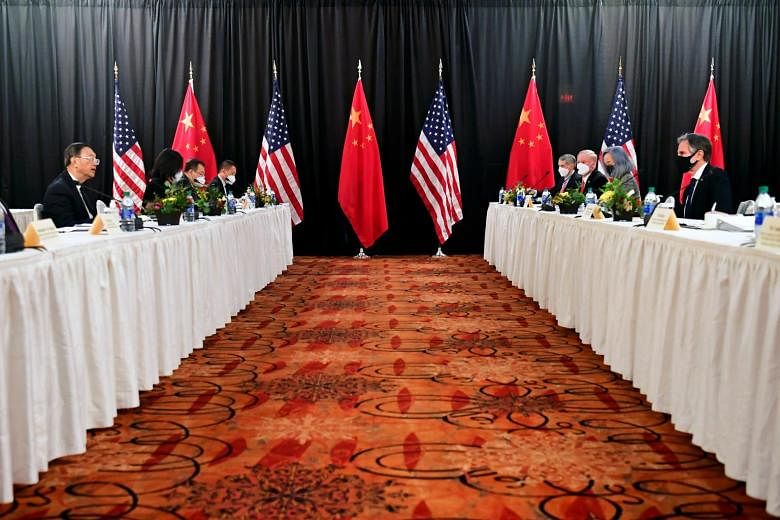A week is a long time in politics. Despite that adage, international relations tend not to be given to much volatility, guided as they are by enduring factors such as geography, history and national interest. But there are moments in global politics when the geopolitical dynamic acquires a sharp and noticeable shift of gears. The unprecedented public acrimony between senior United States and Chinese officials last week in Anchorage, Alaska, might turn out to be symbolic of the huge change in Sino-US relations that could propel Asia into uncharted waters.
Few expected the talks to go well, given not just the recent signalling by the Biden White House but the steady build-up of tensions over the years as successive administrations raised objections to Chinese actions, particularly during the Trump years. But no one was prepared for such a fiery public exchange, which underlined the determination of each side to defend what they see as their essential interests. Neither side can be expected to back down any time soon.
Already a subscriber? Log in
Read the full story and more at $9.90/month
Get exclusive reports and insights with more than 500 subscriber-only articles every month
ST One Digital
$9.90/month
No contract
ST app access on 1 mobile device
Unlock these benefits
All subscriber-only content on ST app and straitstimes.com
Easy access any time via ST app on 1 mobile device
E-paper with 2-week archive so you won't miss out on content that matters to you


